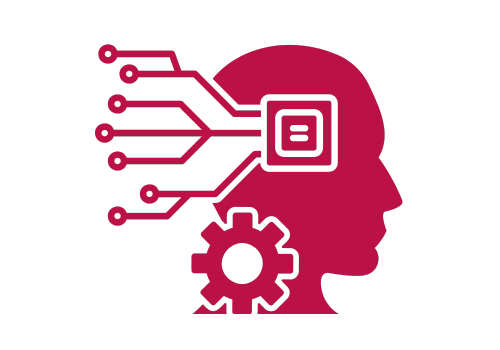DataOps
Streamlining Data and Analytics Workflows
Why This Training?
In the rapidly evolving data landscape, traditional data management practices often fall short in meeting the demands of real-time data processing, collaboration, and analytics. DataOps emerges as a game-changing methodology that integrates data engineering, data integration, and data quality with a focus on collaboration and automation. Our training provides a blend of theoretical knowledge and hands-on practices to ensure participants are equipped with actionable skills.
Duration: 9 Hours (online / virtual live session)

Who Should Attend?
A comprehensive understanding of data's vast landscape.
IT Managers and Leaders aiming to implement efficient data practices.
Data Analysts wanting to understand and participate in DataOps processes.
Developers interested in integrating data pipelines into CI/CD.
Any professional interested in modern data management practices.
IT Managers and Leaders aiming to implement efficient data practices.
Data Analysts wanting to understand and participate in DataOps processes.
Developers interested in integrating data pipelines into CI/CD.
Any professional interested in modern data management practices.

Course Highlights
Foundations of DataOps: Dive deep into the origins, principles, and significance of DataOps in the modern data landscape.
Practical DataOps Implementation: From building data pipelines to integrating tools, get hands-on with DataOps practices.
Practical DataOps Implementation: From building data pipelines to integrating tools, get hands-on with DataOps practices.
See more
EAdvanced DataOps Topics: Explore data security, compliance, and scalability within the DataOps framework.
Best Practices and Pitfalls: Equip yourself with strategies for successful adoption and understand common mistakes to avoid.
Cloud and DataOps: Understand how cloud environments augment the DataOps process and the considerations for hybrid DataOps.
Best Practices and Pitfalls: Equip yourself with strategies for successful adoption and understand common mistakes to avoid.
Cloud and DataOps: Understand how cloud environments augment the DataOps process and the considerations for hybrid DataOps.

Pre-requisites:
Basic understanding of data management and data pipelines.
Familiarity with any programming or scripting language (Python is a plus but not mandatory).
Knowledge of database systems and data storage solutions.
Familiarity with any programming or scripting language (Python is a plus but not mandatory).
Knowledge of database systems and data storage solutions.
Training Materials Needed by Participants:
Laptop or computer with a stable internet connection.
Access to a cloud platform (like AWS, Azure, or GCP) or local setup for hands-on sessions.
Installation of specific DataOps tools (a list will be provided before the training).
Access to the training platform for resources, slides, and guides.
Write your awesome label here.
Training Content
DataOps
1. Introduction to DataOps & Setting the Foundations
Objective: Introduce the DataOps methodology, its significance, and its foundational principles.
1.1. Understanding the Data Landscape
- Data Challenges in Modern Enterprises
- The Need for Agile Data Processes
1.2. What is DataOps?
- Definition and Origins
- DataOps vs. DevOps: Similarities and Differences
1.3. Key Principles of DataOps
- Collaboration & Communication
- Automation & Integration
- Continuous Delivery & Monitoring
1.4. Components of a DataOps Platform
- Data Version Control
- Data Testing
- Data Orchestration & Deployment
1.5. Hands-on Activity:
- Setting up a basic DataOps environment using open-source tools.
2. Implementing DataOps in Practice
Objective: Delve deeper into the practical aspects of DataOps, focusing on tools, pipelines, and workflow creation.
2.1. Building Data Pipelines in a DataOps Framework
- Data Ingestion & ETL Processes
- Data Validation & Testing
2.2. DataOps Toolchain
- Overview of Popular DataOps Tools (e.g., Airflow, dbt, Data Version Control)
- Integration with Data Platforms & Lakes
2.3. Collaboration and Monitoring
- Data Monitoring & Alerting
- Role of Data Cataloging and Lineage
2.4. Automation and CI/CD in DataOps
- Building Continuous Integration Pipelines for Data
- Deploying Data Models & Reports
2.5. Hands-on Activity
- Building and deploying a sample data pipeline using DataOps principles.
3. Advanced Topics and Best Practices
Objective: Address advanced topics in DataOps and provide guidelines for successful adoption and scaling.
3.1. Data Security & Compliance in DataOps
- Ensuring Data Privacy
- Role of Data Masking & Tokenization
3.2. Scalability & Performance Optimization
- Handling Large Data Volumes
- Performance Monitoring & Optimization Strategies
3.3. Best Practices & Common Pitfalls
- Successful DataOps Adoption Strategies
- Common Mistakes and How to Avoid Them
3.4. DataOps in Cloud Environments
- Leveraging Cloud Services for DataOps
- Hybrid DataOps Considerations
3.5. Hands-on Activity:
- Integrating DataOps processes with cloud storage solutions and exploring scalability.
3.6. Wrap-Up and Future Trends in DataOps
WOMEN AI ACADEMY
Women AI Academy is a gender-equality and technology driven learning & development organization
Site Terms & Info
ETHOS AI Training & Consulting GmbH
Weihenstephanerstr.1281673
Munich-Germany
We are driven by the vision of making AI both ethical and accessible to everyone
Copyright © 2024 Brought to you by Ethos ai AI Training & Consultancy GmbH
Ali Hessami is currently the Director of R&D and Innovation at Vega Systems, London, UK. He has an extensive track record in systems assurance and safety, security, sustainability, knowledge assessment/management methodologies. He has a background in the design and development of advanced control systems for business and safety-critical industrial applications.
Hessami represents the UK on the European Committee for Electrotechnical Standardization (CENELEC) & International Electrotechnical Commission (IEC) – safety systems, hardware & software standards committees. He was appointed by CENELEC as convener of several Working Groups for review of EN50128 Safety-Critical Software Standard and update and restructuring of the software, hardware, and system safety standards in CENELEC.
Ali is also a member of Cyber Security Standardisation SGA16, SG24, and WG26 Groups and started and chairs the IEEE Special Interest Group in Humanitarian Technologies and the Systems Council Chapters in the UK and Ireland Section. In 2017 Ali joined the IEEE Standards Association (SA), initially as a committee member for the new landmark IEEE 7000 standard focused on “Addressing Ethical Concerns in System Design.” He was subsequently appointed as the Technical Editor and later the Chair of P7000 working group. In November 2018, he was appointed as the VC and Process Architect of the IEEE’s global Ethics Certification Programme for Autonomous & Intelligent Systems (ECPAIS).
Trish advises and trains organisations internationally on Responsible AI (AI/data ethics, policy, governance), and Corporate Digital Responsibility.
Patricia has 20 years’ experience as a lawyer in data, technology and regulatory/government affairs and is a registered Solicitor in England and Wales, and the Republic of Ireland. She has authored and edited several works on law and regulation, policy, ethics, and AI.
She is an expert advisor on the Ethics Committee to the UK’s Digital Catapult Machine Intelligence Garage working with AI startups, is a Maestro (a title only given to 3 people in the world) and expert advisor “Maestro” on the IEEE’s CertifAIEd (previously known as ECPAIS) ethical certification panel, sits on IEEE’s P7003 (algorithmic bias)/P2247.4 (adaptive instructional systems)/P7010.1 (AI and ESG/UN SDGS) standards programmes, is a ForHumanity Fellow working on Independent Audit of AI Systems, is Chair of the Society for Computers and Law, and is a non-exec director on the Board of iTechlaw and on the Board of Women Leading in AI. Until 2021, Patricia was on the RSA’s online harms advisory panel, whose work contributed to the UK’s Online Safety Bill.
Trish is also a linguist and speaks fluently English, French, and German.
In 2021, Patricia was listed on the 100 Brilliant Women in AI Ethics™ and named on Computer Weekly’s longlist as one of the Most Influential Women in UK Technology in 2021.

